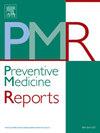探索西澳大利亚州精神病患者接种COVID-19疫苗的障碍
IF 2.4
3区 医学
Q2 PUBLIC, ENVIRONMENTAL & OCCUPATIONAL HEALTH
引用次数: 0
摘要
目的探讨精神病患者对冠状病毒(COVID-19)疫苗接种的障碍,并据此提出专家建议,以提高这一人群的疫苗接种率。方法于2022年9月至2023年9月在澳大利亚珀斯对233名成年精神病患者进行了混合方法的横断面调查。参与者回答了一项简短的电话调查,其中包括有关疫苗接种状况、卫生信息来源、接受或拒绝疫苗的动机以及影响疫苗接种决定的其他因素的问题。结果大多数应答者(217.93.1%)报告已完全接种疫苗,但许多人描述了接种疫苗的障碍,这反映了他们作为精神疾病患者的经历。超过一半(126%,54.1%)的人表示,没有人联系他们接种COVID-19疫苗。所有拒绝接种疫苗的参与者都拒绝接受有关疫苗安全的信息,而几乎一半完全接种疫苗的参与者接受了此类信息。与接种疫苗的参与者相比,未接种疫苗的参与者报告对全科医生和精神科医生的信任水平较低,同时报告对其他医疗保健专业人员的信任水平较高。接种疫苗的个人将预防疾病、遵循建议和遵守规定列为动机,而拒绝接种的原因包括疫苗功效和副作用问题。结论:尽管外联有限,但参与者克服了获得疫苗的障碍,只有那些故意拒绝接种疫苗的人仍未接种疫苗。授权似乎是疫苗吸收的一个重要因素。关于鼓励未来大流行疫苗接种和常规疫苗接种的建议包括提高护士和病例管理人员的技能,以提供疫苗信息,并在精神卫生设施和常规临床预约中提供疫苗接种。本文章由计算机程序翻译,如有差异,请以英文原文为准。
Exploring barriers to the COVID-19 vaccine in people with psychoses in Western Australia
Objectives
We explored barriers to coronavirus (COVID-19) vaccination among people with psychoses and used these to propose expert recommendations to enhance vaccine uptake in this population.
Methods
A mixed-methods, cross-sectional survey was conducted in Perth, Australia, between September 2022 and September 2023 with 233 adults with psychoses. Participants responded to a short telephone survey comprising questions regarding vaccination status, sources of health information, motivations for vaccine acceptance or refusal, and other factors influencing vaccination decisions.
Results
Most respondents (217, 93.1 %) reported being fully vaccinated, however many described barriers to vaccination that reflected their experiences as people living with mental illness. Over half (126, 54.1 %) said they were not contacted by anyone about getting vaccinated for COVID-19. All participants refusing vaccination denied receiving information on vaccine safety, while almost half of those fully vaccinated had received such information. Unvaccinated participants reported lower levels of trust in general practitioners and psychiatrists compared to those who were vaccinated yet, simultaneously, reported higher levels of trust in other healthcare professionals. Vaccinated individuals cited preventing illness, following recommendations, and compliance with mandates as motivators, while reasons for refusal included vaccine efficacy and side-effect concerns.
Conclusion
Despite limited outreach, participants overcame access barriers, with only those who deliberately sought to refuse the vaccines remaining unvaccinated. Mandates appear to have been a significant contributor to vaccine uptake. Recommendations for encouraging future pandemic and routine vaccinations include upskilling nurses and case managers to provide vaccine information and offering vaccination in mental health facilities and at routine clinical appointments.
求助全文
通过发布文献求助,成功后即可免费获取论文全文。
去求助
来源期刊

Preventive Medicine Reports
Medicine-Public Health, Environmental and Occupational Health
CiteScore
3.90
自引率
0.00%
发文量
353
 求助内容:
求助内容: 应助结果提醒方式:
应助结果提醒方式:


